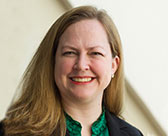 The 2016 CACE faculty seminar on “theater as way of knowing” was full of unexpected joys, and the work we did together as faculty will certainly bear fruit in the classroom. That fruit will be, I imagine, unpredictable. Here, I’ll confine myself to some musings on what we learned in the seminar about repetition and what that might mean for our work in the liberal arts classroom.
The 2016 CACE faculty seminar on “theater as way of knowing” was full of unexpected joys, and the work we did together as faculty will certainly bear fruit in the classroom. That fruit will be, I imagine, unpredictable. Here, I’ll confine myself to some musings on what we learned in the seminar about repetition and what that might mean for our work in the liberal arts classroom.
The first day of the seminar, as we were taking turns doing an acting exercise, one of our colleagues in theater offered an insight. He explained that, if this were his acting class, he would have us repeat the exercise, attempting to do it exactly the same on repetition, because repetition implies intentionality.
My colleague’s comment was a mini-revelation for me. What can we learn, in the classroom and in life in general, from the actor’s intentional, loving, carefully wrought repetition? What does it mean, for me, to play my role as a teacher day in and day out, semester in and semester out?
What does it mean to teach the same subject over and over again? At this point in my teaching career, this is one of the questions with which I wrestle the most. It can start to feel stale, sharing that same anecdote about the doctrine of God for the twentieth time, and this is the case even though, on that day in the classroom when I first stumbled across said anecdote, I found it profoundly revealing. Could my whole relationship to my course material be transformed if I thought of it as an intentional performance, given with love and attention to my students and to my subject matter, instead of thinking it as simply once-more-round-the-bend?
What else in the Christian life might be transformed by this kind of theatrical attention to repetition as a form of love and intentionality?
In his recent book on eschatology, theologian Paul Griffiths imagines heaven as a kind of of repetition, a repetition of praise. This isn’t the kind of eschatology I gravitate toward. I’m more easily moved by N.T. Wright’s images of heaven as full of God-glorifying activity or by the Eastern fathers’ tendency to think of heaven as an ever deepening ecstasy.
But theater as a way of knowing has helped me to see Griffith’s view afresh. He imagines the end of all things as something like the repetition we experience, this side of heaven, in worship. Griffiths suggests that “liturgy transfigures . . . time by way of repetition,” [1] and he meditates on the way liturgical repetition “is written on the body.” [2] Here, the love and intention of repetition has the potential to transform our performances, our teaching, our life together, and our offerings of praise.
Contact Us
Center for Applied Christian Ethics
117 Blanchard Hall
501 College Ave
Wheaton, IL 60187
